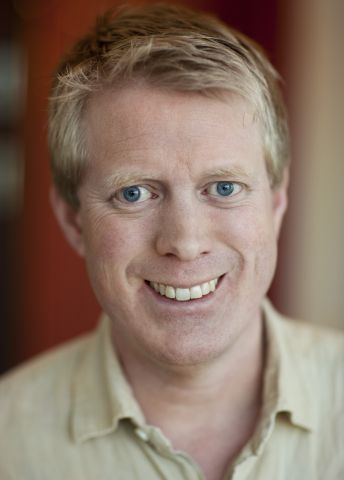
Thomas Helleday
Professor of chemical biology
Wallenberg Scholar
Institution:
Karolinska Institutet
Research field:
Catalytic medicines
Professor of chemical biology
Wallenberg Scholar
Institution:
Karolinska Institutet
Research field:
Catalytic medicines
Catalytic medicines as future treatments?
As a Wallenberg Scholar, Thomas Helleday hopes to develop a new method of treating diseases and ageing that uses small molecules serving as catalysts to create new biochemical processes in cells.
The main method currently in use for treating diseases and ageing involves inhibiting the enzyme activity in pathogenic proteins with molecules or antibodies.
While the current strategy has given rise to many successful treatments, there is a problem in that many diseases are sometimes caused when proteins fail to operate correctly or lack functions.
Professor Thomas Helleday and his research group have recently shown that together with an endogenous protein, a small molecule can act as catalyst and create a new biochemical function. In this project, they want to exploit this finding to test if these can be develop into a new therapeutic method involving the reactivation or creation of new protein functions in the body.
Prevent ageing
Their method employs molecules called amplizymes to boose enzyme activity in specific proteins and thereby stimulate new biochemical processes and functions inside the cells. This can pave the way for new therapeutic methods.
“We will test if these catalytic molecules can be used in microscopic amounts as opposed to inhibitors that need to occupy and block the catalytic site on every single protein,” says Professor Helleday.
His research group has already shown that small molecules can increase the cells’ ability to repair DNA damage ten times faster by increasing the activity and creating a new biochemical function in the protein OGG1, which removes and repairs oxidative DNA damage.
In the first phase of the project, the group will be surveying the fundamental properties of the OGG1 amplizymes in order to develop new ones. They will also be studying the biological effects of using OGG1 amplizymes to repair DNA damage.
They also plan to examine whether OGG1 amplizymes can be used to treat diseases that currently have no treatment, such as ageing, liver fibrosis and neurodegenerative diseases.
“Oxidative damage is responsible for ageing and most diseases we know of,” he says. “We hope that boosting the repair of oxidative damage will enable us to treat diseases for which there is currently no treatment and prevent ageing.”